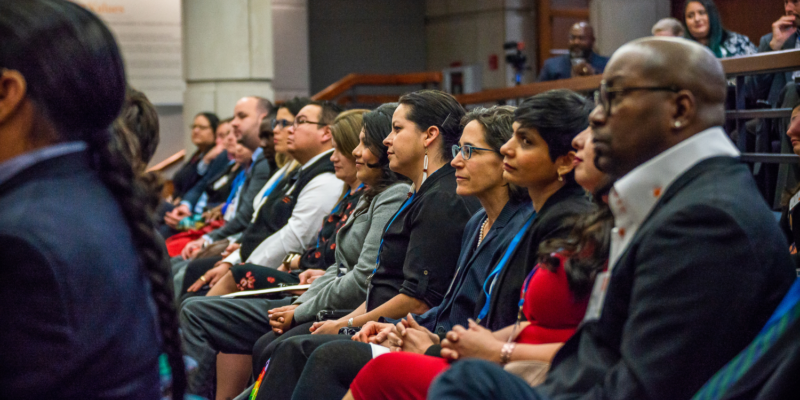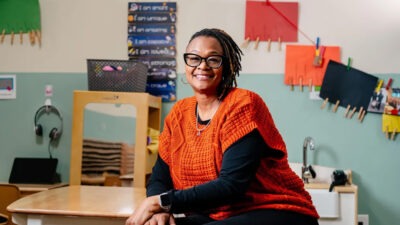This post is also available in: Español (Spanish) Português (Portuguese)
“Convening is about creating a place and an invitation for people to show up and take responsibility for the well-being of the whole.”
– Peter Block
The WKKF Global Fellows Network recently gathered for a virtual conversation with Peter Block, a renowned organizational development consultant, speaker and author on the topics of leadership, community building, and organizational change. Block’s books include “Flawless Consulting,” “Community: The Structure of Belonging,” and “The Empowered Manager.” His work promotes leadership that emphasizes inclusion and relationship building.
In the conversation with more than 80 WKKF Global Fellows, Block described the lasting effects of colonialism, paternalism and racism in traditional leadership practices and how these are counter to meaningful and effective global conversations and connections. He encouraged participants to treat others as partners rather than passive recipients, taking a “leader as convener” approach. Building relationships and connections to serve the common good, Block explained, allows people to be seen and heard — and their value and gifts acknowledged. In turn, people are empowered to exercise accountability and make meaningful choices.
“Leader as convener,” according to Block, also shifts the emphasis from an individual speaker or “expert” to small groups of participant leaders. In keeping with this concept, small groups of three participants from across the globe met during the session to delve deeply into provocative questions from Block. According to participants, these breakouts demonstrated the “power of three” to facilitate deep conversations that transcended language and geography and help participants feel connected to the larger group.
Block advocated for challenging paternalistic narratives that define people by their circumstances, like poverty or political marginalization, and instead emphasizing that everyone has gifts and is creating a life regardless of income or education. In a colonial world, Block explained, the focus is often on competition and fixing what is “wrong” – including in people. He suggests shifting this perspective by acknowledging people’s gifts: asking them what they are good at, how they can be supported, and what they are passionate about. This approach, known as social capital, can lead to positive changes in neighborhoods and communities: “When leaders focus on gifts and capacities, something shifts in the room.” In a breakout group question, Block modeled this shift by asking: “What’s the crossroads you’re at in this stage of your life?” He explained that this reflection can help individuals recognize their choices and the direction they want to take, encouraging self-awareness and personal growth.
Another tool that Block proposed is using open-ended questions to encourage personal reflection and curiosity, rather than questions that invite people to “problem-solve” for someone else:
“The question to ask – the most engaging, connecting question you can have people ask each other is: ‘why does that matter to you?’”
For the WKKF Global Fellows who participated, Peter Block offered a number of perspectives that hold promise for continuing to build the network. One person commented that the session helped them to see both the similarities across the globe in the challenges facing children, families and communities, and that we have the opportunity – and new tools – to collaborate and act together.
Watch the whole session here:








Comments